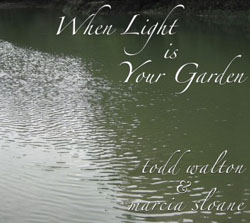Last week’s blog entry recounted the origin of “Light Song” and how I came up with the title for my new album of songs Lounge Act In Heaven. Readers seem to be enjoying these song origin stories and I enjoy remembering how these songs came to be, so I thought I’d tell the story of the song ‘You Are The One’ which is Track 11 on Lounge Act In Heaven.
By the way, there is a stirring piano/accordion instrumental entitled ‘Lounge Act In Heaven’ on my CD Lounge Act In Heaven. Track 3.
So… in 1995 I moved from Sacramento to Berkeley and took possession of a large old house on Evelyn Avenue, the diminutive front yard featuring one of the tallest eucalyptus trees in Berkeley. Forty-five and recently divorced, I was excited about starting my life in a new place with clean air and cool summers. I was able to afford the rent on the old house because I signed the rental agreement in 1994, a year or so before rent control ended in Berkeley and rents skyrocketed. This was also at the very beginning of the Dot Com boom that would change Berkeley and the Bay Area forever and force most low-income artists in the Bay Area to move elsewhere. In other words, I snuck in shortly before I couldn’t have possibly snuck in.
I loved living in Berkeley for the first few of the eleven years I eventually lived there. There was no need for me to own a car, delicious ethnic cuisine abounded, and my creative juices were flowing again. I had stopped writing songs for my last several years in Sacramento and I surmise the songs had been mounting up all the while in my heart/brain/spirit because upon arriving in Berkeley many songs burst forth.
‘You Are the One’ was born as a bass line/chord progression played on the guitar. I loved the jazzy feel of the notes and chords, and after a few months of playing the sequence dozens of times every day, I could have lengthy conversations with my friends while playing the progression and never losing the beat. (My friends seemed to enjoy having a guitar soundtrack underpinning our conversations.)
Once the progression was second nature to me, I started singing wordlessly to the music. After some months of singing along using non-word vocal sounds, I had a melody I liked. The first actual words arrived at the end of a verse. “You are the one everybody wants to be with tonight.” I wasn’t sure what the words were referring to, but I liked how they sounded and I liked how they might mean all sorts of things.
One night in September I was sitting in my living room playing the progression and listening to a strong wind off San Francisco Bay blowing the thousands of leaves of the aforementioned gigantic eucalyptus tree in my front yard and I sang, “Listen to the wind as it blows through the trees, listen to her, listen to me.”
Intrigued, I got out pen and paper, wrote the line down—and the rest of the words quickly followed.
A few days later I got a call from an old friend asking me to come to Sacramento to perform in the annual Kerouac reading that would take place in early October. When I lived in Sacramento I participated in this annual homage to Jack Kerouac and his Beat cohorts several times. However, I was no longer interested in those writers, save for Philip Whalen, so I declined the invitation.
The next day that same friend called again and said, “We could really use you on the bill. I’ve kind of already put your name on the fliers and posters and T-shirts and in the press release and… you don’t have to read any Beat stuff if you don’t want to. Just do one of your stories and sing a song.”
Feeling a little nostalgic for my old stomping grounds, I agreed to perform.
When the gala day arrived, I borrowed a car and drove to Sacramento, arriving in the rain at an old warehouse where a hundred or so poets and artists and musicians were gathered to listen to a handful of latter day Beats read Kerouac and do some of their own stuff, too.
We four headliners drew straws and I was up first. I placed the not yet completely memorized lyrics to ‘You Are The One’ on a music stand in front of me and said to the wonderfully attentive audience, “This is a brand new song called ‘You Are The One,’ and for some reason I want to read the lyrics to you before I sing the song.”
Why this got a big laugh I don’t know, but it did, and then I launched into the progression and sang the song. And one verse in, a very good string bass player waiting in the wings started playing a groovy bass accompaniment and a couple gals in the audience joined in with high harmonies on the recurring line ‘You are the one everybody wants to be with tonight,’ and we brought the house down.
During the long intermission, I was approached by several people who said they loved the song, which was nice to hear, but even more interesting was that three of those people, two women and a man, each said they felt I was singing the song especially for them, though I didn’t know any of them. And because I had no solid notion of what the song was about, I was eager to learn what they felt the song was saying to them.
They all said essentially the same thing, which was that the song is a call to overcome our self-doubts and step into our full power so we may bring our gifts to the greater world.
I have subsequently performed ‘You Are The One’ for many audiences, and many people have confided that they felt the song was asking them to overcome their fears and doubts so they might bring their concealed talents to a larger audience.
∆
In 2008, Marcia and I made our first CD of songs together When Light Is Your Garden on which we recorded a slow ceremonial version of ‘You Are The One’. I love that version, especially Marcia’s cello solos, but I have always wanted to record a faster version with a great vocalist singing with me, and that’s what we did for the Lounge Act In Heaven version, Gwyneth Moreland singing with me and playing accordion. I also play lead guitar on the Lounge Act version, which was a big deal for me because… well, first I had to overcome my self-doubts and step into my power.
Listen to the wind as it blows through the trees.
Listen to her and listen to me.
Listen to your heart, and listen to your brain.
Listen to the sweet song of the rain.
Oh my darling, I know this is hard for you to hear,
But you are the one everybody wants to be with tonight
Listen to her and listen to me.
We can see what you can’t see.
We have felt your healing touch.
We have known your healing power.
And we believe this is your golden hour,
That you are the one everybody wants to be with tonight
Listen to your heart, listen to your brain.
Can you hear what they are saying?
Can you bear the knowledge that you were born
To bear the torch of hope?
Oh I know there’s a part of you that would rather live in secrecy,
But you are the one everybody wants to be with tonight.
Listen to the sweet song of the rain.
Listen to the howl of that old night train.
Listen to your feelings.
Listen to this song of our love for you.
You are the one everybody wants to be with tonight.
Listen to the wind as it blows through the trees.
Listen to her and listen to me.
Listen to your heart, and listen to your brain.
Listen to the sweet song of the rain.
Oh my darling, do not be afraid,
You are the one everybody wants to be with tonight







